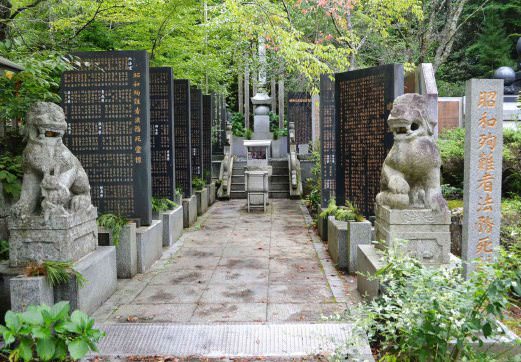SHANGHAI: China called on Japan to break from its aggressive past and win the trust of its Asian neighbours on Thursday, a day after news Prime Minister Shinzo Abe had honoured Japanese World War Two war criminals as “martyrs.”
Abe sent a message in April to a Buddhist temple in western Japan housing a monument to more than 1,000 “Showa Martyrs“, including wartime leaders convicted by Allied tribunals who were executed or died in prison, an official of a group sponsoring the event told Reuters on Wednesday.
The term “Showa” refers to the late Emperor Hirohito, in whose name Japanese soldiers fought World War Two.
News of Abe’s condolence message was expected to further strain ties with China over Japan’s war record.
“The Japanese government needs to sincerely reflect on its history of aggression and make a clean break with militarism, that provides an important foundation for Japan to rebuild and develop relations with its Asian neighbours after the war,” said China’s foreign ministry spokesman Qin Gang in a statement posted on the ministry’s website on Thursday.
“We urge Japan to abide to their commitment to post-war non-aggression and take practical action to win the trust of their Asian neighbours and the international community,” said Qin Gang in the statement, made in response to a reporter’s question on Abe’s message.
Japan’s wartime leaders are enshrined along with war dead at the more widely known Yasukuni Shrine in Tokyo, visits to which by Japanese leaders typically outrage China, where memories of Japan’s past militarism run deep.
Abe surged back to power in December 2012 pledging to revive the economy, but remains committed to a conservative agenda that includes recasting Japan’s wartime past with a less apologetic tone and easing the limits of its pacifist constitution.
Ties between Japan and China, Asia’s two biggest economies, has been frayed by rows over the legacy of Japan’s wartime militarism, a territorial feud over tiny islands in the East China Sea, and mutual distrust over defence policies. -Reuters
-nst








